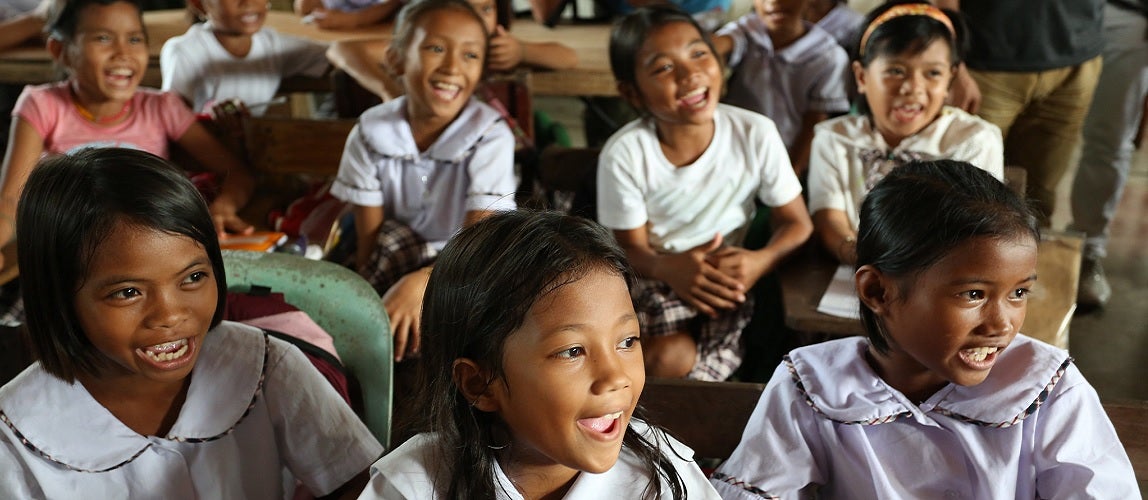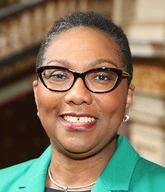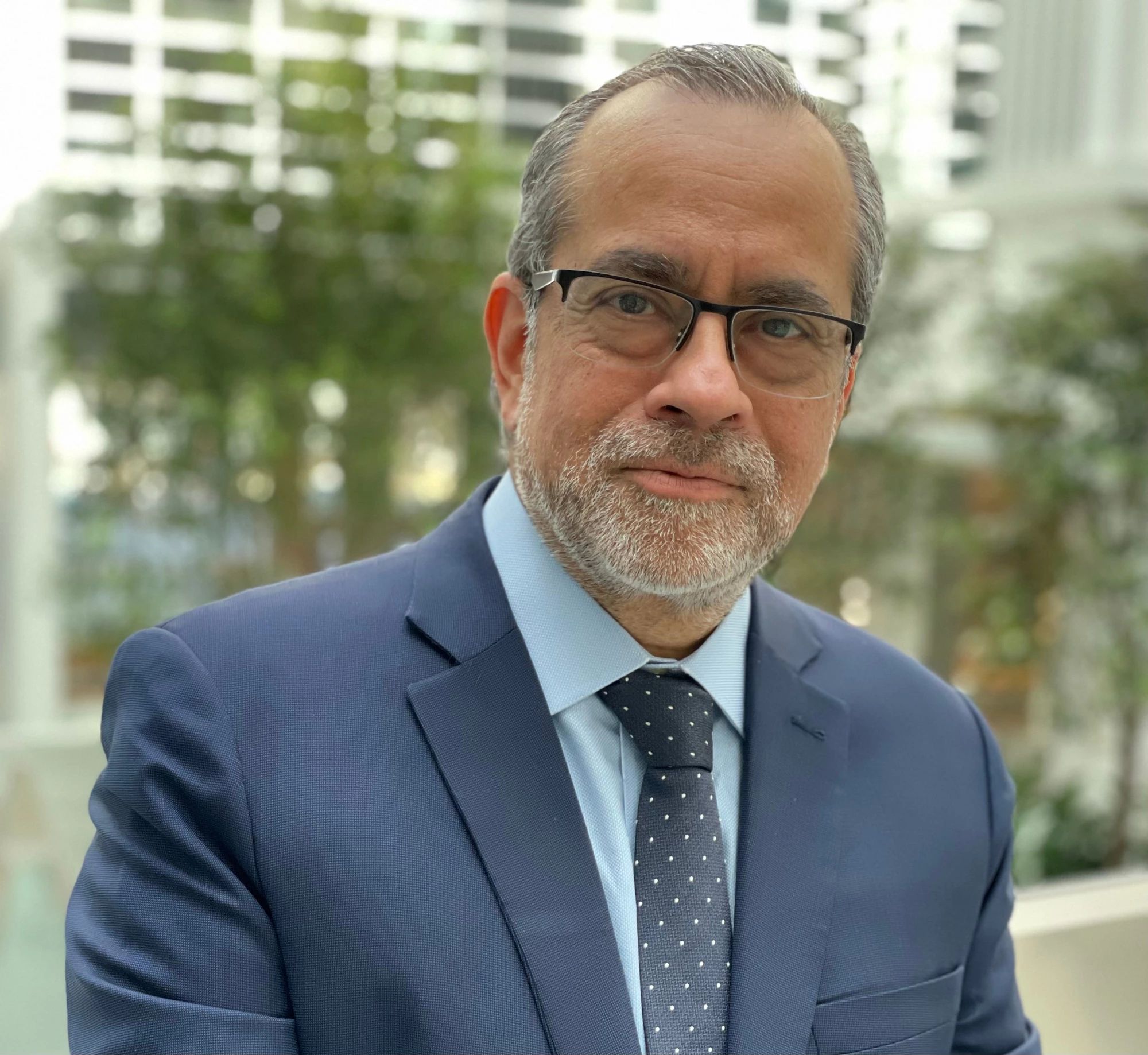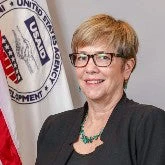 طلاب من مدرسة بيسليغ الابتدائية، مدينة تاناوان في إقليم لايتي بالفلبين. بعدسة: البنك الدولي
طلاب من مدرسة بيسليغ الابتدائية، مدينة تاناوان في إقليم لايتي بالفلبين. بعدسة: البنك الدولي
We dedicate this blog to the memory of Girin Beeharry and Rebecca Rhodes, much loved and valued colleagues taken from us too early, whose relentless and optimistic pursuit of children’s learning will continue to be an inspiration to us all.
Foundational learning is exactly what it sounds like – the foundations of a child’s education. It refers to basic literacy, numeracy, and transferable skills, that are the building blocks for a life of learning. Just as we would not build a house without solid foundations, we cannot expect a child to thrive without solid foundational skills. Yet today, across most of the developing world, these foundations of learning are not strong enough.
The learning crisis is not a result of COVID-19; the pandemic has only made it worse. Before the outbreak, 53 percent of children in low- and middle-income countries were living in Learning Poverty, that is, they were unable to read and understand a simple text by age 10. In Sub-Saharan Africa, the figure was closer to 90 percent. By the time the pandemic will be over, learning poverty will most probably rise by at least 10 percent as the impacts of school closures, lost learning hours, and increased dropout rates take their toll. This makes Sustainable Development Goal 4’s (SDG4) promise of a quality education for all drift even further from our reach. But there is hope that we can still turn this trend around.
We are approaching the end of a critical year for education and for the future of the world’s children. The decisions made this year, and the priorities we collectively commit to at all levels over the coming years, have the potential to change children’s lives and roll back Learning Poverty. In May, G7 leaders endorsed the girls’ education declaration to ensure that all children, specifically girls, safely return to schools and learning. In July, the Global Education Summit raised a record $4 billion in international development assistance and reminded us of the critical importance of domestic resources, which constitute the bulk of education sector finance. Right now, work is underway to secure a strong outcome for education in the negotiations to top up the International Development Association (IDA), the World Bank facility that supports the world’s poorest countries. This week at the 26th United Nations Climate Change Conference of the Parties (COP26), the UK will shine a light on the clear and present danger that the climate crisis now poses for children’s learning around the world, with extreme weather events disrupting the education of nearly 40 million children a year.
These decisions matter because children in too many places around the world are still missing out on a basic education. So, amidst the summits and negotiations, our organizations are choosing to unite around one critical goal: ensuring all children acquire the foundational skills vital to unlock accelerated progress towards achieving SDG4.
Focus on the outcome
We recognize and support the breadth of SDG4 that spans from early childhood education, through basic education, and continues throughout one’s life. But without strong foundational skills, a girl is more likely to drop out of school early, and thus be denied the opportunity to enjoy the long-term health, economic, and social benefits of a quality and inclusive education.
This is why it is vital to invest early in building these foundational skills, especially for marginalized children, and why our organizations are expanding efforts in this area. G7 leaders gave a further boost to this work when they came together to adopt two new, ambitious SDG4 milestone targets that address the immense gaps in children’s foundational skills. Both outcomes – access and learning – are also captured in the critically important Learning Poverty measure.
Foundational skills are the critical building block in the process of acquiring knowledge and experiences by progressing through various stages of the education system. Therefore, we believe it is essential that we fix our eyes firmly on this crucial goal and unite in action around fighting learning poverty precisely because of the wider opportunities eliminating it will unlock.
Applying the evidence about what works
The magnitude of the learning crisis we are facing demands bold responses deployed at large-scale and at a fast pace. Applying evidence of what works in education – adapted to the current context – can help us accelerate the response.
For instance, to guide our policy advice and operational support to countries, a recent World Bank report, “Realizing the Future of Learning,” discusses essential policy actions needed to accelerate learning that characterize the way many successful systems operate. Countries can chart their own path with a political commitment to carry out investments and reforms focused on five interrelated pillars of a well-functioning education system: learners, teachers, learning resources, schools, and system management.
In addition, language of instruction must be brought to the forefront of education policy discussions, as evidence demonstrates that teaching children in a language they use and understand at home has the potential to support development of foundational skills. The evidence also tells us that meeting children where they are and tailoring curriculum and instruction to their level of knowledge is an effective way of improving foundational learning outcomes. Parental engagement is equally important as empowered parents/caregivers demand quality education and actively support children’s foundational learning at home and in schools.
USAID, building on years of experience in foundational learning and distance learning, has developed useful resources and guidance for governments, such as the Reading MATTERS framework and the Toolkit for Designing a Comprehensive Distance Learning Strategy, a whole of government response to interruption in learning during the COVID pandemic. The FCDO funded EQUIP-Tanzania program is an example of an at-scale, sustainable program that had a measurable impact on learning, achieved by strengthening existing structures and creating platforms for teachers to improve their teaching, in a decentralized and continuous way.
Fortunately, through the work of initiatives such as the Global Education Evidence Advisory Panel, established by the FCDO and World Bank we can be guided by the evidence in a cost-effective way. A major emphasis is on ensuring the evidence is translated into resources to support practical application such as the UNICEF-JPAL forthcoming FLN Education Menu, the RTI-Gates Foundation Science of Teaching Guides, and the UNICEF FLN Academy. To have long-lasting impact, all these mechanisms must be combined with country-led action and the use of a “test adapt and scale” approach, such as through the FCDO’s What Works Hub, to support locally led innovation.
Political commitment
Yet the challenge of orienting our collective efforts in education towards these reforms is only partly a technical one. Our organizations recognize that the power of political commitment and the coordination of support are equally critical, if not more important. Political leadership on foundational learning can change the conversation at the global and national levels. A good example of such strong commitment is represented by the group of countries that joined the World Bank-led “Accelerator Program,” in which the World Bank, USAID, UNICEF, and FCDO are partners. These countries are taking the lead in pledging to monitor learning, establish national targets, strengthen accountability for results, and implement a package of interventions that can move the needle of learning in the short run. They are willing to make the political, technical, and managerial commitment to make a difference, now.
FCDO, USAID, UNICEF, and the World Bank, in coalition with our partners, want to ensure that foundational learning remains a political priority at global, regional, and national levels. As education systems recover from the pandemic, a redoubled reform effort now will build the foundations for accelerated progress in the vital years ahead, ensuring that children around the world learn early, learn more, and keep on learning.





Join the Conversation